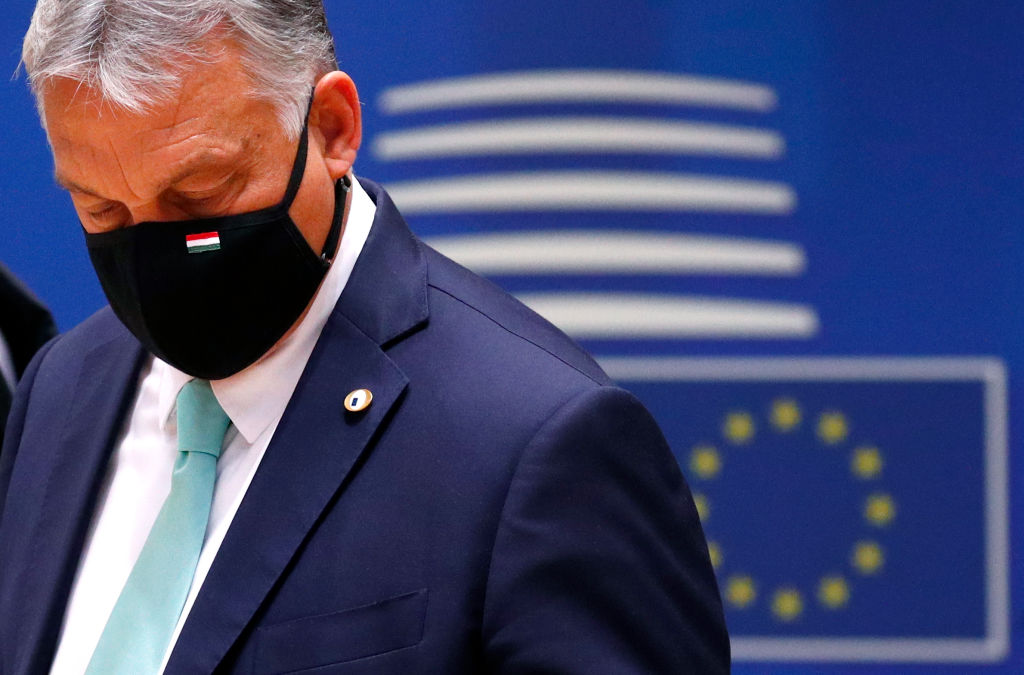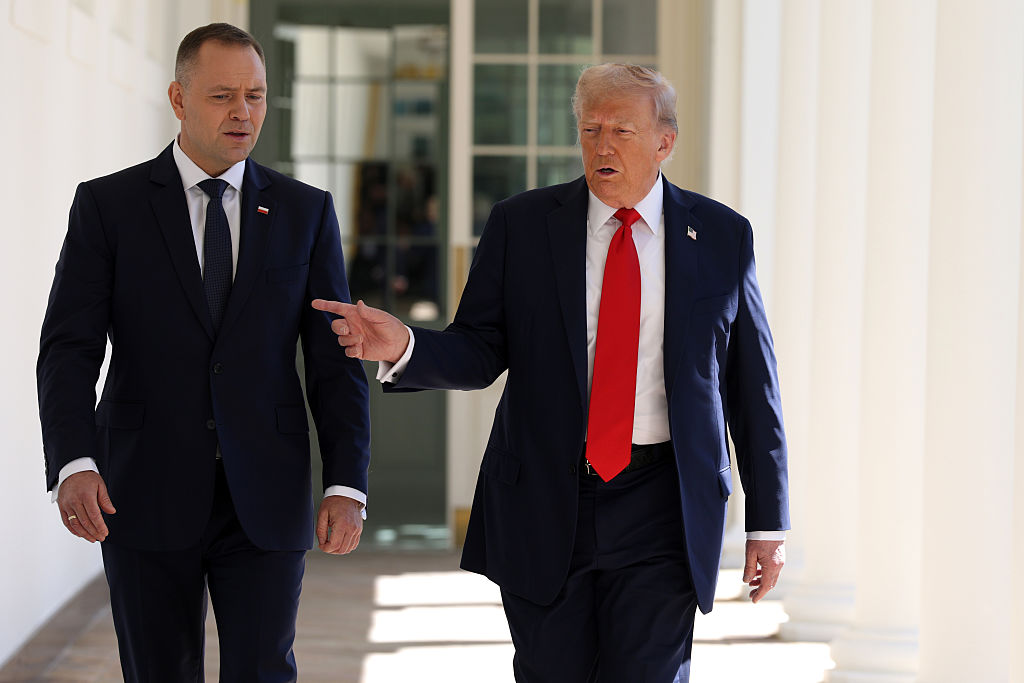The bad boys of Europe are at it again. The EU has been attempting to tie budget funds to members states’ adherence to the rule of law. This has been rejected by Poland and Hungary, leading to the latest in a long line of conflicts between Brussels and the conservative Central European countries.
But looking at the issue in a wider regional context, it becomes clear that this is not just another diplomatic spat, but part of a wider trend. The liberalism of the EU is now facing a serious ideological opposition from the entire ‘Visegrád Four’ bloc of Hungary, Poland, the Czech Republic and Slovakia.
The latest dispute over the rule of law mechanism could have been seen coming. Concerns about the mechanism have been rumbling in Hungary and Poland since a coronavirus budget was agreed by the EU back in July.
The Polish prime minister, Mateusz Morawiecki, and Hungarian pantomime villain, Viktor Orbán, have said that their objection to the Rule of Law mechanism in the draft EU budget is down to concerns that it will be used to punish nations which do not accept migrants. Orbán has described the mechanism as ‘ideological blackmail’.
These concerns about migration are why the EU should not be complacent, just because they are facing only Hungary and Poland this time. The other Visegrád Four countries, Slovakia and the Czech Republic, usually stand alongside their allies when it comes to migration. The four nations (joined from time to time by others such as Austria, Latvia, Estonia and Slovenia) have maintained a coordinated stance in opposition to the EU’s migrant quota system, designed to allocate a fair share of migrants to each member state, since the migrant crisis in 2015.
By 2018, the Czech Republic was supposed to have relocated 2,691 refugees from Greece and Italy; in reality it relocated 12. Slovakia relocated 16 out of its allocated 902 asylum seekers. Hungary and Poland were allocated 1,294 and 7,082 respectively, but accepted none at all. The Czech Republic, Poland and Hungary were subsequently found to have breached EU law by the European Court of Justice (Slovakia was let off the hook thanks to its 16 relocated migrants).
This time the Visegrád Four have splintered, with Czech and Slovak politicians speaking out against their usual allies. This may be down to the vagueness of the Rule of Law mechanism which has allowed differences of opinion to emerge within the group. Other factors could be at play too: Czech prime minister Andrej Babiš has faced allegations of conflicts of interest throughout the budget talks due to his ownership of Agrofert, a major beneficiary of EU subsidies. As such, he might be reluctant to raise his head above the parapet.
Yet, looking beyond this latest dispute, all four of the Visegrád nations are still united when it comes to their opposition to the EU’s liberal values.
Hungary’s deep-rooted fear of migration even occasionally seems incompatible with EU membership. But the country is heavily dependent on EU trade, especially with Germany. More than half of Hungary’s GDP is generated by foreign companies operating in the country. And Angela Merkel’s government is loath to take a strong stance against Hungary due to the huge benefits of German-Hungarian industrial cooperation. Hungary was Germany’s largest arms export market in 2019.
Attitudes towards migration are less visceral in the Czech Republic and Slovakia but remain strong. Andrej Babiš is extremely popular in the less cosmopolitan, more rural parts of the Czech Republic, whose population are more conservative when it comes to migration. Nearly two-thirds of Czechs think the country should not take in refugees, while the hard-line anti-immigration party Freedom and Direct Democracy won 35 council seats in this year’s regional elections.
In the 2020 Slovak general elections, three of the top four political parties were explicitly anti-immigration. The far-right outfit People’s Party Our Slovakia came in fourth place, with 17 parliamentary seats.
And V4 divergence from EU principles isn’t about migration alone. Andrzej Duda has called LGBT rights an ‘ideology’ worse than communism in the run-up to recent Polish presidential elections, which he won. Hungary has enshrined ‘sex at birth’ in the civil registry, making it impossible to legally change gender, and Slovakia’s constitution explicitly limits marriage to opposite-sex couples (only 24 percent of Slovaks support same-sex marriage). Slovakia’s newly elected Ordinary People party has confirmed that recognition of civil unions will never be on the table while it is in power.
It is clear that the EU’s ideological problem with the V4 region runs much deeper than the present dispute.
[special_offer]
It is tempting to focus only on the individuals involved in the budget crisis: to dismiss Orbán and Morawiecki as rogue despots with no public mandate for their actions and to assume that, if full and fair democratic processes were observed, both Poland and Hungary would favor policies similar to those found in Northern and Western Europe.
Yet such a view does not chime with the democratic elections held in the V4 region this year: Duda won the Polish presidency in an affirmation of socially conservative values, while elections in the Czech Republic and Slovakia saw very strong performances by anti-immigration parties. It also ignores the fact that the Visegrád Four — whose histories of war, occupation, and communist authoritarian rule in the 20th century differ so greatly from their northern and western counterparts — have long pursued policies in opposition to some of the EU’s core tenets.
A compromise might be found allowing all parties to walk away from negotiations with their heads held high. But the divide between liberals and conservatives in the EU is deeper than ever and dissenting voices from the EU’s central faction are only going to get louder.
This article was originally published onThe Spectator’s UK website.

























